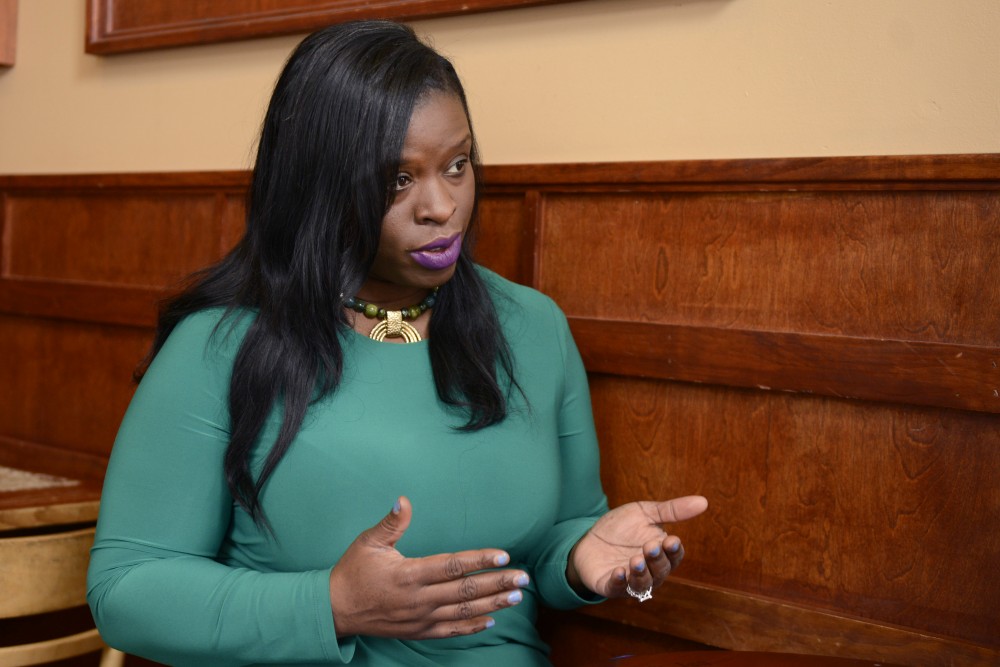The 2015 police shooting of Jamar Clark was life-changing for Nekima Levy-Pounds.
After Clark was killed by the Minneapolis Police Department, Levy-Pounds, a then-law professor and NAACP chapter president, thought her message about problems surrounding policing wasn’t being heard by the city.
Levy-Pounds announced her Minneapolis mayoral candidacy exactly one year after Clark’s death and has emerged as a serious, outside candidate ahead of the April 4 precinct caucuses.
“You have a culture that allows violence to persist, particularly against some of the most vulnerable residents of the city,” Levy-Pounds said. “Seeing that caused concern on my end on whether government officials were even worried about the police department.”
Levy-Pounds hasn’t been elected to office before but has developed a large following after she led the Minneapolis NAACP through the shootings of Clark and Philando Castile.
Levy-Pounds was a prominent figure in the events following Clark’s death, working with Black Lives Matter to rally volunteers.
“Nekima is a powerful force. She’s someone who’s excited and mobilized a certain part of the city,” said Larry Jacobs, University public policy professor and director of the Center for the Study of Politics and Governance.

He said while she’s one of six candidates for mayor, alongside Mayor Betsy Hodges and City Council Member Jacob Frey, she may be the only real outside candidate, but her first-ever shift to public office could bring criticisms she’s not used to.
“She’s also someone who’s alarmed and unnerved,” Jacobs said, “and I think that is going to be a drag on her support.”
During her time as a law professor at the University of St. Thomas, Levy-Pounds said she lobbied for criminal justice reform in Minneapolis.
If city officials had listened, Levy-Pounds said, Clark would still be alive today.
“I saw a breakdown in city government, a breakdown in communication,” she said. “They were not as attuned to residents of color and those on the margins.”
Her tenure as a professor and at the NAACP ended in July and November, respectively, as she turned her full attention to the mayoral race.
At the NAACP, she helped revive the Minneapolis chapter and develop committees aimed at solving problems pertaining to African-Americans and other underserved communities.
A former head of a committee, Jason Sole, is now the chapter’s president and said Levy-Pounds established herself as smart, articulate and results-oriented during her time at the NAACP.
“I’ve seen her stand fearless in the face of adversity,” Sole said. “That’s one of the major qualities you need in a mayor.”
Although Levy-Pounds has made her name being very vocal about criminal justice reform, her campaign has four other key components: affordable housing, economic equity, a $15 minimum wage and environmental justice.
Levy-Pounds said she has found ways to tackle problems her whole career. She spearheaded efforts to remove outdated ordinances with racial undertones and mobilized community members when she felt it necessary.
When she announced her mayoral run, it was the culmination of her dissatisfaction with Hodges and city government in general.
“[It] would be a breath of fresh air in city hall to have someone who is not part of the status quo,” she said, “who is not part of the current political system, coming in and saying, ‘listen, we have an opportunity to do things differently.’”








